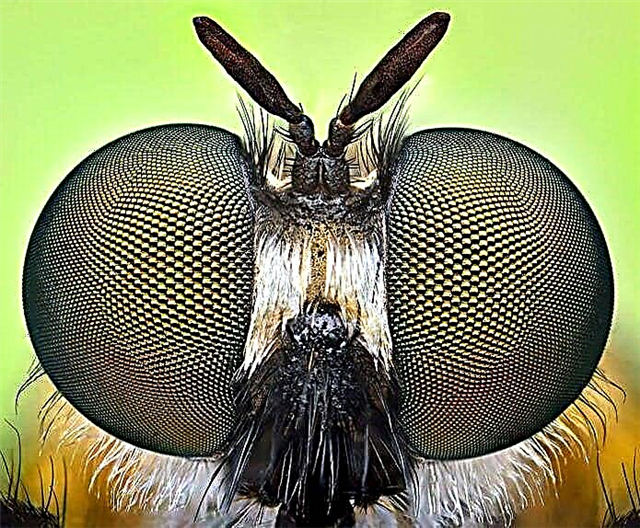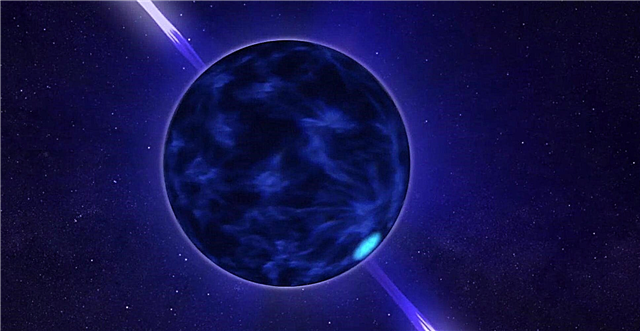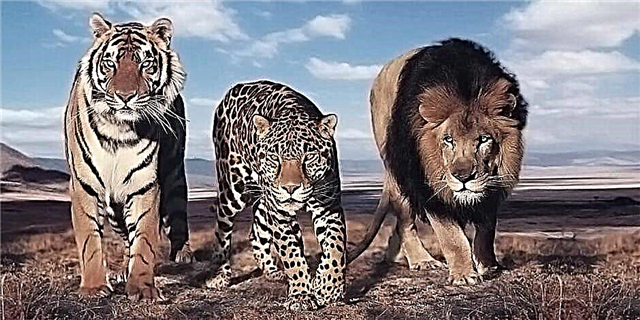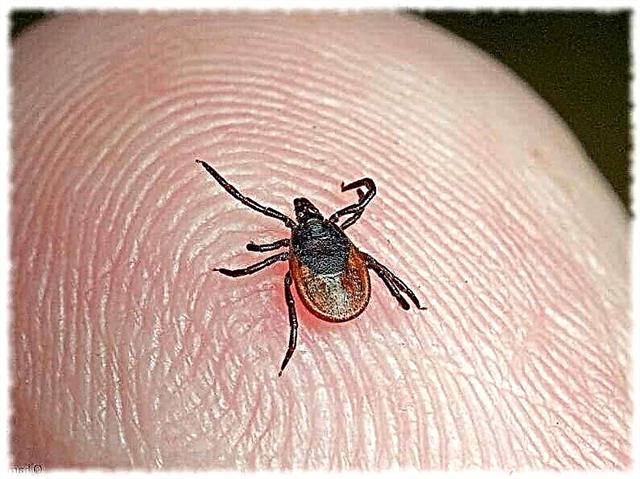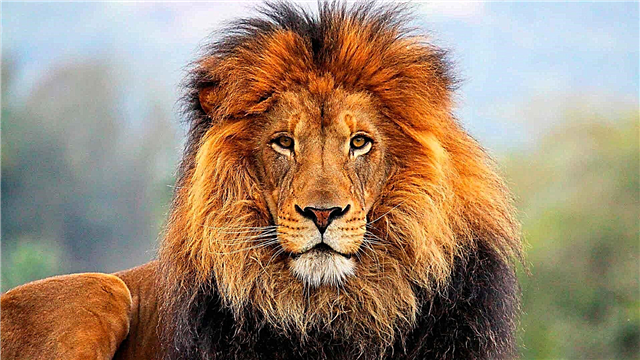
Ecology is a science that studies the basic natural laws, the interaction of living and non-living organisms. At the same time, solving environmental problems is important for the survival of not only animals, but also humans.
What is ecology and what does it study
Environmental doctrine is a separate science that studies the laws of nature. The doctrine originated in 1866 by Ernst Haeckel. People from ancient times were interested in natural laws, wanted to study them and deified. The term ecology is translated from Greek as the doctrine of the house.

Ecology studies absolutely all the effects of man on a living environment, it touches on many pressing issues of interest to mankind.
Technical progress is constantly evolving, people paid little attention to the environment, and therefore the air has become polluted, many species of animals and plants are dying. Now millions of activists are trying to solve environmental problems, gradually improving the current state of affairs.
Types of Ecology
Ecology, as well as other teachings, tells about many sections of the life of the planet. Fit all the main factors affecting the environment, will not work in one direction. It will turn out either to get completely confused, or to completely go astray to solve the problems that have arisen.
It is worth remembering that ecology originated no more than 200 years ago, but it received a high degree of significance along with physical, mathematical and chemical studies. Many scientific fields are not just affected by ecology - it takes them as its basis.
There are several types of ecology:
- Ecology of the biosphere, where the habitat of people is thoroughly studied, as well as global problems and changes.
- Industrial ecology, which studies the impact of human activities related to industrial production on the environment.
- Industry ecology considers each branch of human cognition separately, while they are of great interest for research.
- Agricultural ecology reveals patterns of impact of agricultural enterprises and facilities on nature.
- Ecology of evolutionary development considers evolutionary processes, the effects of their impact on the external environment.
- Valeologyconsidering the quality of human existence and health. It helps well in medicine.
- Geoecology makes research in the field of the geosphere and the inhabitants of the Earth.
- Marine and oceanic ecologyaimed at addressing the issues of pollution of the aquatic environment and correcting the situation.
- Social ecologyconsidering cleanliness in the field of social issues.
- Ecology of Economics, which draws attention to the constant development of algorithms for solving problems of concern to humanity in the form of rational distribution and exploitation of resources.
Each section is constantly supplemented and increased, however, each branch in any case comes down to one thing - the solution of global environmental problems. The main task of ecology is to preserve and increase the species of living organisms in order to prevent the Earth from dying ahead of schedule.
History of occurrence
Ecology science began to emerge in the 60s of the IX century, before that it was only a separate part of biology. The founder of the teaching is a natural scientist from Germany, who vehemently followed the teachings of Charles Darwin, Ernst Haeckel. He came up with such a resounding name. Thanks to the influence of two factors, the rapid development of ecology as a scientific knowledge began: the rapid growth of the Earth's population and the intensified development of scientific and technological progress.

Industry adversely affected the state of the environment, air emissions only aggravated the situation.The consumption of resources was increasing, so it was necessary to develop a strategy for their rational use. There were much more people than animals, and the numbers of the second ones began to decline. Comfortable human existence is a priority, thanks to scientific and technological progress, it has become possible to live in any territories.
At this moment, nature began to fade away. It was necessary to take up the study of the ecology of the planet before its complete extinction. The study of environmental factors, as well as the relationship between living organisms, has become important in order to stop the extinction of already rare species. Ecologists. Do not separate from other sciences in terms of importance to humanity.
What does ecology mean?
Ecology contains many questions, the solution of which is necessary for the whole of humanity. Ecology is closely related to the habitat and purity of nature. "Eco" is perceived by many as a symbol of cleanliness, safety and health. This is due to the fact that the task of ecology as a scientific doctrine is to preserve the purity and health of the planet.
Ecologists are scientists studying the influence of most processes, substances and living organisms on the world around them. Speaking the word ecology, everyone implies a certain purity and integrity of nature.
Ecotopes are special areas of the habitat of many organisms that have undergone changes as a result of their activities in this territory.
The term ecosystem refers to the interaction of large groups of living organisms.
By adding an eco-friendly prefix to any product, marketers are trying to increase the number of sales. Blindly trusting such consoles is not worth it; it is better to carefully look and examine the contents of those food products or items. Only in some cases does the prefix eco-mean something completely different, but this can only be heard in the scientific community.
Where and who needs ecology?
Ecology is currently being studied in many schools, universities and colleges. This happens regardless of the main training profile. Everyone should know about environmental problems, but much more will be known about it at the same faculty of ecology than at architecture or economics.

The subject of ecology was introduced by the state in the curriculum is far from random. People need to know some basics that will help preserve nature intact. People are faced with environmental issues daily; they can both improve and worsen the state of the planet through their actions. Everyone needs to know about the proper distribution of garbage, which minimizes the effect of harmful waste on the health of all living organisms. Even a smoked cigarette harms not only the smoker himself, but also the environment around him.
At the moment, each enterprise includes separate units involved in the study of environmental issues. There is an environmental safety service in every locality. Not only scientists think about problems, but also ordinary people with their hobbies and lifestyle. Ecology is very interesting, diverse and requires careful attention from every inhabitant of the planet..
Fundamentals of Science
The study of the ecological interactions of living and nonliving objects is the basis of general environmental research. General ecology is divided into different sections.
Demecology
Demecology, which considers the population of living organisms, mechanisms of natural effects that strongly affect the number and density of wildlife. She is exploring the possibility of removing various species from nature.
Autoecology
Autoecology studies living organisms, their habitats, individual and general relationships and individual species.
Synecology
Synecology considers the ecological communities of organisms, ecosystems and populations, as well as their impact on nature, its mechanisms and structure.
Thus, ecology can be considered as a science that considers interactions between representatives of animate and inanimate nature. She does not study individual organisms; she is interested in whole systems.
Objects of Ecology Research
- Biosphereconsidering the rapid spread of living organisms on the planet;
- Populationwhere the number of species of organisms in certain areas of the planet is studied;
- Ecosystemwhere they study the totality of organisms in certain areas.
Man and nature are inextricably linked, people must be aware of their place and role on the planet, as they are endowed with reason. Humanity has always wanted to find its own role in the universe. Since man is part of nature, his habitat is civilizations created by people.

The path of human development is in conflict with nature, it is detrimental to its general condition. The level of development of mankind at the moment has led us to become aware of what we have done over the years. The existence of living organisms, including humanity, is in constant danger.
Ecology is always looking for solutions to such problems. The planetary scale of troubles leads to the need for greening, which is the consideration and adoption of measures to preserve wildlife in all areas of human cognition. Ecology creates a bridge between science and nature, trying to preserve the fragile wall that separates humanity from disaster.
Research methods

Environmental studies are carried out exclusively in vivo and are closely associated with living organisms. Cognition methods are divided into laboratory and field. Those, in turn, are also divided into such types:
- Stationary, that is, the object of research is not only observed, but also measured, described and given characteristics.
- Descriptiverepresenting initial research, familiarity with the object of study.
- Laboratorywhen all the necessary research is carried out empirically.
Experimental - conducting chemical research, experiments and experiments. At the end, a quality assessment is given.
Habitat

Everything around us is the environment. It can be personal to everyone - objects that surround a person individually. The main part of nature remains unchanged, only individual, constantly changing details can be added to it. Individual environment - all visible and invisible objects.
The human body can be considered the environment for various microorganisms. In order to see the close relationship between the environment and living organisms, you need to carefully study it. Many natural objects of the Earth are inhabited by creatures that are characteristic only for these areas. In another setting, living organisms simply will not get the substances they need.
Water reserves can be considered the first habitat of living objects. It was there that life was born on the planet, which subsequently began to study the nature around.
The body environment is a refuge for microorganisms, parasites and symbionts. Because of the diverse living conditions, each organism has its own individual characteristics that are inherent in it and distinguish it from others.
Environmental factors

Environmental factors are closely related to environmental studies. Ecology pays great attention to them. External factors radically change the adaptive abilities of animals living in this territory. Environmental factors may be:
- Abiotic, that is, inanimate: all components of inanimate nature;
- Biotic, components of wildlife that cause adaptive reactions;
- Man-madethat is, related to human activities.
The latter kind of factors greatly affects nature.A person can both positively and negatively affect animals. As a result of such effects, whole species die out. The thoughtless intervention of mankind in natural mechanisms will sooner or later lead to the death of the planet, which ecologists want to avoid by all means.
The harmful effects of humans on the environment

In addition to the relationship between nature and animals, ecology also solves the problems of environmental pollution. The world around us is scientifically called the biosphere, and its pollution is the ingress of toxic substances into its territory. In addition to toxic waste, constantly polluting the air, nature is destroyed by noise, sounds and radiation.
Anthropogenic pollution is a great danger to nature. Man creates problems of enormous proportions, which are difficult to solve. We pollute the soil, water and air. The civilization of people began to pollute even space. If the environment does not develop, then soon we will not remain at home.
Global environmental issues

The global environmental issues that concern every inhabitant of the planet include:
- Global warming;
- The gradual change in ocean level, its pollution by waste;
- The destruction of the ozone layer;
- Wise use of resources;
- Destruction and extinction of rare species of animals.
This list cannot be considered even a small part of all the problems of mankind that appeared through his fault.
How environmental problems are prevented and resolved
Scientists are considering environmental problems and are looking for ways to solve them. Now there are many environmental organizations that attract volunteers to cleanse water bodies, beaches and forests from human debris.
Garbage recycling and sorting systems are becoming increasingly popular, allowing you to reuse plastic, glass and rubber. A method of using plastic as fabrics, biodegradable bags, which can be considered a real revolution in the field of ecology, has appeared. There are so-called environmental police departments that assess the situation in these territories and solve problems.
The importance of ecology for every person
Taking care of the environment is everyone’s duty. Some do not even realize the full extent of the catastrophes, but the situation in the world is deplorable. Human irresponsibility can lead to the death of all life on Earth.
All the inhabitants of the planet can constantly do a number of simple actions, the combination of which will gradually restore the natural balance. You can take waste paper, pack garbage on materials. It’s easy to do, and one person will not change anything. But there are more than 7 billion inhabitants on the planet, and if at least half begins to act right now - we will save our house and its inhabitants.

